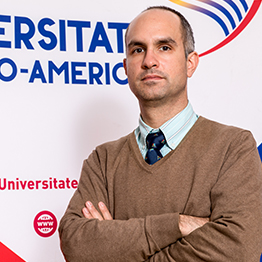AI and Consumer Behavior: Understanding Marketing Dynamics
Rapid advancements in artificial intelligence (AI), particularly in generative AI, are reshaping consumer behaviour and influencing engagement, decision-making, and market dynamics. This track aims to explore the complex effects of AI on consumer behaviour, integrating insights from behavioural sciences, marketing, psychology, systems thinking, and technology studies. The track seeks to provide a comprehensive understanding of how AI-driven innovations impact consumer decision-making, brand engagement, and emerging market trends.
We welcome research employing diverse methodological perspectives, including qualitative, quantitative, mixed-methods, systems thinking, and computational approaches. Special emphasis will be placed on studies addressing governance and strategic implications of AI in shaping consumer interactions with brands, products, and services.
Business Ethics and CSR
Different opinions on business ethics and CSR circulate today. Some argue that being ethical goes hand in hand with business responsibility. Others believe morals are a costly choice in the business environment, and label CSR initiatives as marketing stunts. The aim of this track is to encourage discussions about company’s behavior in a dynamic and complex environment, where stakeholders are the cornerstone.
The track covers issues related to Corporate Social Responsibility in the business environment, guidelines for companies’ accountability and reporting, social entrepreneurship, regulatory environment and policies, social media and ethical concerns, growing a sustainability-oriented culture, ESG and corporate strategy, greenwashing and other unethical practices in the business environment.
Economics
The world economy continues to suffer in 2024 from a series of destabilizing shocks, including the most recent pandemic, the invasion of the Russian Federation in Ukraine, the consequent geopolitical shifts, and the effects they have on inflation, on supply chains, on commodity and energy markets, leading to soaring prices, fears concerning food insecurity and poverty, especially in emerging and developing countries.
This track aims at encouraging debates on the post-Covid international economics dynamics and policy response, making reference, among other issues, to trade models and policies, foreign direct investments, economic growth, government debt, inflation, stagflation, and long-term global, regional, and local impacts of the recent events.
Entrepreneurship and Family Business
Entrepreneurship within family businesses presents a complex and fascinating dynamic. While some view family firms as conservative and tradition-bound, others highlight their agility, long-term vision, and resilience as key drivers of innovation and success. At the same time, balancing entrepreneurial ambition with family values, intergenerational differences, and succession challenges can create unique tensions and opportunities.
The aim of this track is to foster discussion around how entrepreneurial thinking shapes and transforms family businesses in today’s evolving economic and social landscape. It explores the delicate balance between legacy and innovation, and how family-owned enterprises navigate growth, governance, and generational change.
The track covers topics related to succession planning, intergenerational leadership, entrepreneurial behavior in family firms, governance structures and conflict resolution, innovation in traditional industries, gender roles in family entrepreneurship, access to capital, sustainable growth, and the long-term strategic vision of family businesses.
Employee and Organizational Resilience
Challenges facing organisations and their employees are constantly increasing and acquiring new shapes. In the VUCA era of volatility, uncertainty, complexity and ambiguousness, crises in the forms of “black swans” (small probability but high impact events) or “grey rhinos” (large probability and high impact events) have become regular events with potential to create heavy losses (Chen et al., 2021).
Given the turbulent times, organisational survival and effectiveness as well as employee well-being at work depend on the ability of organisations and employees to withstand and adapt to significant challenges, that is, on their resilience (Näswall et al., 2019). Resilience is commonly defined as “the ability to become strong, healthy, or successful again after something bad happens” (Merriam-Webster, 2015).
Employee resilience captures the extent to which employees successfully deal with different changes and setbacks at work, to which they adapt accordingly to thrive in a new environment (Näswall et al., 2015; Britt et al., 2016; Caniëls and Hatak, 2022; Fischer et al, 2022, Lu et al., 2023). More resilient employees are able to respond to the changing demands, tend to be more open to new experiences, and are emotionally capable of managing adversity (Branicki et al., 2016). Resilience is a positive internal resource (Liang and Cao, 2021) or the degree to which employees are able to maintain well-being (Scheibe et al., 2022). Challenges facing organisations and their employees are constantly increasing and acquiring new shapes. In the VUCA era of volatility, uncertainty, complexity and ambiguousness, crises in the forms of “black swans” (small probability but high impact events) or “grey rhinos” (large probability and high impact events) have become regular events with potential to create heavy losses (Chen et al., 2021).
Finance and Banking
Following the Covid-19 crisis, analysts signal the potential for elevated inflation and higher interest rates, corporate solvency issues, market fragility and asset bubbles, as well as increased climate-related risks. These concerns come in addition to the sector of finance and banking undergoing accelerated digital transformations, and allowing for the digital assets (cryptoassets, stablecoins, and central bank digital currencies) to take momentum.
This track welcomes works on topics covering the recent developments in the field of finance and banking, tackling but not limited to the following: green finance issues, bank investments, de-risking investments in sustainable infrastructures, fintech challenges, decentralized finance, block-chain based solutions, operational risks, reputational risks. Comparative approaches and in-depth analyses are sought after.
Knowledge Management
Knowledge economy is increasing its contribution to the GDP of most countries in an accelerated rhythm and enlarges rapidly towards emergent economies. In this context, knowledge becomes a strategic resource, and managing knowledge becomes a driving force of achieving a competitive advantage. As the societies, companies, institutions and individuals embrace the technological advancements specific to the Industrial Revolution 4.0, particular challenges and development opportunities emerge. Thus, a focus on the process of digital transformation and its connection to how knowledge is created, stored, used, transferred and enhanced becomes necessary.
Suggested topics for the authors who would like to join this track include, but are not limited to: knowledge of the strategic resource, knowledge management for sustainability, knowledge strategies, intellectual capital, digital transformation for a sustainable future, preparing for the Metaverse.
Major Organzational Transformations
Never before in history have organizations been confronted with two significant disruptions happening simultaneously, as at present: the digital revolution with the new advances of artificial intelligence (AI) and the necessity for adopting sustainability beyond buzzwords. Tomorrow is today, but leaders seem to only start to be aware of the profound changes that happen at an unbelievable speed, and they need to wisely adapt strategies and business models to these new paradigms.
Authors are invited to address in their papers (but they are not limited to) the topics below:
· Organizational strategies: choices and challenges
· The complex landscape of adopting sustainability in an ongoing digitalized framework
· The clash between existing business models and new digitally enhanced/ managed ones
· Managing in a future reshaped by AI
· Purpose-driven leadership and incentive systems
· ESG in focus
· Creating value in the new complex ecosystem
· Transforming the organizational culture
· Leading the ecosystem change
· Sustainable innovations through digital instruments and the impact of AI
Management and Leadership
Novel business models take momentum in the post-Covid times, and digitalization unfolds at an accelerated pace, leading to deep transformations in many industries and regions. Embracing a more thoughtful approach to doing business, and a focus on sustainability are visible and even enforced via regulation. These changes couple with the shifts regarding the balance of power between employers and employees, and with the new dynamics visible in the work arrangements. The imperative of health management measures, the emergence of hybrid working schedules, and the desire for flexibility that more and more people announce impact workers and the management practice on various levels, including performance measurement. Discussions concerning the evolving management practices and leadership challenges are, consequently, needed and welcome.
Authors are invited to present their original works on topics related to change management, conflict management, combating burnout, hybrid or remote work, future of work, stakeholder engagement, sustainable business models, and changes in the management practice.
Marketing and Consumer Behaviour
Organized in partnership with the Romanian-American University of Bucharest
Since the 1980s a new research stream started to emerge in the field of marketing, focusing on the business’ response to the green consumer movement: the green marketing, the ecological marketing, or the environmental marketing. This subdomain of marketing is widely perceived as a kind of sustainable marketing, or as marketing for sustainability, which makes it a neighbouring research field to social marketing and CSR. The most recent technological developments, such as the ones related to the adoption of digital tools, or to using novel delivery instruments, such as drones, together with the changing consumer expectations and habits, have given momentum to the studies in the field. The post-Covid market dynamics, the increased ecological awareness, coupled with energy prices skyrocketing, with the delivery chain shortages, with prices going up, and with the need to focus on building relevant consumer experience impact the current marketing practices.
The track welcomes papers that tackle the theory and practice of marketing in the current times, with a special interest in novel research concerning green/ ecological/ environmental marketing, economic issues related to green marketing, green marketing as a tool of sustainability, sustainable marketing/ marketing for sustainability, values-led marketing strategies, communicating Sustainability, innovation in marketing, embracing a direct-to-consumer mindset, fast response to market demand, empowering consumers, and customer experience strategies.
Marketing New Perspectives: AI Trends and Digital Approaches
The topic “Marketing new perspectives: AI trends and digital approaches” aims to bring together scholars, practitioners, and industry experts to explore the rapid changes transforming marketing, including shifts in consumer behavior, technology, and market structures. The focus is on innovative strategies and the societal impact of emerging technologies that will define the industry’s future.
Key themes include but are not limited to agile marketing, AI-driven personalization, the rise of virtual and traditional influencers, data-driven decision-making, the evolution of content and social media, digital transformation, ethical and sustainable marketing, and technological innovations in retail such as AR, VR, and chatbots.
The call welcomes innovative ideas and interdisciplinary contributions that can enrich the conversation about the future of marketing. Join us for a collaborative dialogue that will drive the marketing industry forward into the next century!
Redefining Business Norms by Circular Economy and Social Entrepreneurship
This track approaches new sustainable and socially inclusive business models, Circular Economy and Social Entrepreneurship initiatives currently becoming an important part of the EU’s socio-economic landscape. Such new business models respond to today’s biggest common challenges and contribute to environmental sustainability and to social and economic well-being.
Papers presented may cover the following topics, but they are not limited to them:
· Business models for a more circular economy – emphasizing the principles of the 9R model (refuse, rethink, reduce, reuse, repair, refurbish, remanufacture, repurpose and recycle)
· Exploring social economy business models – Work Integration Social Enterprises, Entrepreneurial NGOs, cooperatives and other models
· Social entrepreneurs at the frontier of the circular movement: social economy business models pioneering circular economy
· Transformative opportunities for companies to collaborate with social entrepreneurs in the circularity sector
· Social economy business models advancing the clean energy transition – renewable energy communities and citizen energy cooperatives
· Business model innovation in enterprises: best practices and case studies of circular and/or social economy enterprises in innovative sectors inspiring future entrepreneurs
Sustainable Management Practices in Culture
Sustainable management practices have become increasingly vital as organizations and institutions grapple with the challenges of environmental degradation, social equity, and economic stability. This track aims to explore innovative strategies and approaches for integrating sustainability principles into cultural management practices. By examining diverse case studies and theoretical frameworks, the track seeks to foster interdisciplinary dialogue and offer practical insights for fostering sustainable cultural institutions.
In today’s rapidly changing world, the sustainability of cultural institutions is not only a moral imperative but also an economic necessity. This track addresses the pressing need for cultural organizations to adopt sustainable management practices to ensure their long-term viability and relevance. By bringing together scholars, practitioners, and policymakers, this panel will facilitate knowledge exchange and collaboration to address the complex challenges facing cultural management in the 21st century.
The lines of studies that might be considered for this track could be very diverse, oriented toward:
– Economic viability of cultural organizations
– Community engagement and participatory approaches in cultural management
– Education and capacity building through culture
– Digital innovation and accessibility of heritage and culture
– Sustainable conservation practices for historic buildings and cultural artifacts
– Environmental sustainability and impactful initiatives in cultural organizations
– Social equity, enhancing accessibility and inclusivity in cultural institutions
– Professional development and knowledge-sharing opportunities for cultural practitioners in sustainable management
– Policy and governance in the cultural domain
– Relationships between cultural organizations management and cultural and creative tourism
By addressing these diverse lines of studies, the track will provide a comprehensive overview of the multifaceted challenges and opportunities in sustainable cultural management, offering valuable insights for researchers, practitioners, and policymakers alike.
Sustainability and Corporate Governance: Bridging Accountability and Strategy
In an era of heightened corporate responsibility and regulatory scrutiny, sustainability and corporate governance are no longer optional but essential elements of business strategy. This track explores the intersection of sustainability reporting, corporate governance, and strategic management, emphasizing the accounting profession’s critical role in fostering sustainable development.
The track will address the following key topics:
The Role of Sustainability Reporting: How sustainability reporting frameworks (such as GRI, SASB, and ESRS) enhance corporate transparency and accountability.
Corporate Governance and Ethical Leadership: The influence of board structures, ESG metrics, and leadership accountability on long-term value creation.
Regulatory Trends and Compliance: The evolving landscape of sustainability regulations and their impact on corporate governance practices.
Integrated Thinking and Reporting: The shift from financial-centric to holistic reporting models integrating ESG considerations.
Stakeholder Engagement and Corporate Strategy: How businesses align governance structures with stakeholder expectations and sustainability objectives.
The Future of Sustainable Finance: The role of investors, financial institutions, and rating agencies in shaping corporate sustainability commitments.
This track invites scholars, practitioners, and policymakers to contribute empirical research, case studies, and theoretical advancements that redefine the role of governance in sustainable business practices. Through interdisciplinary discussions, we aim to provide insights that guide corporate leaders in navigating sustainability challenges while ensuring accountability, compliance, and strategic resilience.
Systemic Collaboration and Innovation Ecosystems for Sustainable Value Creation
Today’s global challenges — from climate change to social inequality, from digital transformation to territorial resilience — require systemic and collaborative responses. This track explores how heterogeneous stakeholders (businesses, public institutions, universities, local communities) can co-create sustainable value through innovation ecosystems, public-private partnerships, and the application of system thinking and system dynamics.
A systemic approach enables a deeper understanding of the interconnections between actors, processes, and contexts, promoting a long-term governance of innovation, capable of anticipating future scenarios and generating shared impact.
Suggested topics include, but are not limited to:
• Innovation ecosystems and multi-stakeholder governance
• Co-creation and public-private partnerships for sustainability
• System thinking and system dynamics in strategic decision-making
• Collaborative models for implementing the SDGs at the local level
• Tools and metrics to evaluate the systemic impact of projects and policies
• Strategies for resilience, adaptation, and social innovation in complex environments
• The role of universities, research centers, and businesses in driving transformation
• Collaborative strategies addressing social inclusion, gender equity, work-life balance, and support for family policies and birth rate — essential components of a sustainable and inclusive innovation ecosystem
The track is open to a wide range of methodological approaches, and both conceptual and empirical contributions are welcome.
Towards Sustainable and Digital Organizations and Communities
Public administration and private organizations are now facing the imperative of becoming (more) sustainable. This translates as an opportunity to innovate, to redesign strategies and structures, to redefine behaviours and actions in order to act ethically and reach targets while thinking about the impact the society and the environment.
This track welcomes papers investigating the development of public organizations, considering public value creation and human resource management, financial, economic and social performances of public and private organizations, sustainability and accountability of organizations, co-production of public service and public value co-creation, public services sustainability, innovation, cities and communities, public sector management reform, sustainable and responsible entrepreneurship, organizational and strategic change within public administration, the role of the public servants, the use of technologies of information and communication, citizens’ involvement and participation in managing res publica, public policies for sustaining growth and economic development, law, ethics and public administration, public policies for the sustainable development of the society.






















